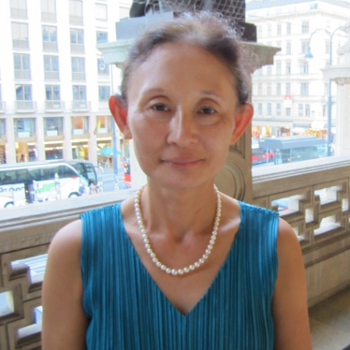We live in extraordinary times. After two years of pandemic, the world is now threatened by the prospect of a full-scale war. At the opening night of the French version of Verdi's Don Carlos that the company is performing the first time, the Metropolitan Opera displayed a magnificent show of support for Ukraine with a moving chorus of its national anthem before the curtain. Then it was time to go back to 16th-century Spain, to a story of a dysfunctional imperial family with a backdrop of political intrigue. Sir David McVicar's new production could have been an opportunity to relate the old story to our tumultuous times, to show the universality of human tragedy. Instead, we had another dark, monolithic, monochromic staging with tall, imposing sliding walls looking like catacombs to signify religious and political oppression, complete with over-the-top period costumes. It may satisfy those who relish old-fashioned “grand opera” staging, but it contributes little to enhancing and deepening the audience’s appreciation of how a 16th-century drama might have contemporary relevance and resonance.
McVicar’s productions have some merits. The walls stay in place throughout, facilitating scene changes with only brief interruptions to the music. Outdoor scenes are indicated with the walls opening to show a forest or garden. The ceiling of the monastery of Saint-Just features a gigantic brass thurible. Against the backdrop of Charles Edwards' huge set, McVicar shows flashes of his usual attention to relationships and interactions of individual characters. He makes three questionable directorial choices, however. There is a “dancer” dressed like a flame/devil/jester in the auto-da-fé, whose presence is merely distracting. There is a large statue of Christ on the cross hanging in King Philippe’s study. At the end of the opera, the wounded Carlos is embraced in death by the ghost of his friend Rodrigue, not by an old monk/King Charles V. Is the director intending to show the libertarian slant of Carlos and Rodrigue against religious oppression?
The stale and old-fashioned staging and awkward blockings, with the steps in front of the stage which often relegate the action towards the back, is unfortunate as the musical performances were mostly quite satisfying. Matthew Polenzani’s lyrical tenor is perfect for the title role. The French version gives more music to the character, most significantly in his duets with Rodrigue, and with his father Philippe after Rodrigue’s death. Polenzani paced himself throughout the evening, and he sang the weak and troubled prince with beauty, sensitivity, as well as power and passion when needed, with supreme attention to the flow of text. His high notes opened up with ease and clarity, and blended well with others while asserting his status as the lead character.
Étienne Dupuis, a native French speaker, sang the character of Rodrigue, the Marquis of Posa, a pivotal character in anchoring Carlos’ sanity and challenging Philippe’s dominance, with a powerful and expressive baritone. One would have hoped for a bit more subtlety here and there, but there was enough swagger, charisma and sophistication in his interpretation to make his every scene on stage a pleasure. Soprano Sonya Yoncheva played the role of Elisabeth not so much as a helpless victim of circumstances, but as a defiant and wilful woman. She negotiated her tricky final aria with delicate pianissimos while retaining warmth in her middle voice. She was elsewhere an effective presence on stage and in voice. Jamie Barton, a relatively late replacement as Eboli, brought down the house in the aria “O don fatal!” with a strong but creamy delivery of vocal lines that culminated in thrilling, if a bit thin, high notes. There were notable contributions by two basses, John Relyea as a frightening and brutal Grand Inquisitor and Matthew Rose as a sonorous-voiced monk. Eric Owens sang Philippe as more of a resigned and sad old man than a ruthless and stern tyrant. Unfortunately his voice and presence lacked the necessary gravitas.
Yannick Nezet-Seguin conducted the excellent Met Orchestra in a confident and elegant performance. Under his direction, music and text flowed naturally and seamlessly, with Verdi’s score finding full expression in the original French. It is a shame that the Met does not provide French subtitles, even for an opera written in French, the audience is deprived of a chance to follow the words as they are sung.




